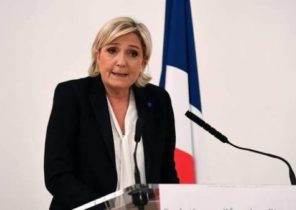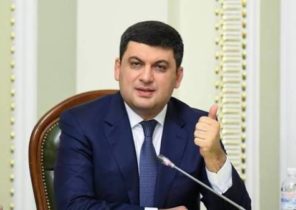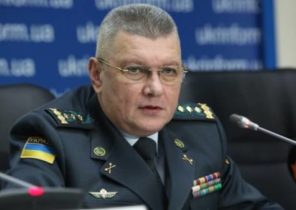July 15 United States Department of state revised its regulations in respect of the application of sanctions contained in Section 232 of the Law on combating the enemies of America by sanctions (Countering America’s Adversaries Through Sanctions Act — CAATSA), and this was done explicitly in order for the pipeline “Nord stream — 2” fell under the sanctions imposed on the basis of this law. U.S. Secretary of state Mike Pompeo announced these measures, and stressed that the pipeline “Nord stream — 2”, the construction of which is nearing completion, may give Moscow an economic and political levers of pressure on Europe, thus undermining the energy security of the European Union. The new manual also refers to the second string of the pipeline “Turkish stream” (TurkStream) is another project of the Russian company “Gazprom”, linking Russia with Turkey under the Black sea and intended for further transportation of natural gas to Europe.
In the previous version of this guide (October 2017) an exception was made for those projects that were signed before the adoption, on 2 August 2017 of the Law on combating the enemies of America by sanctions, and one of them was “Nord stream — 2” and “Turkish stream”. Germany in particular expressed concern about the Law on counteraction because of its impact on the “Nord stream — 2”. In the new version of the manual emphasizes that the state Department does not take from-under actions of this law “Nord stream — 2” and any other previous project and, in addition, the Agency shifts focus towards the sanctions imposed against the investment referred to in Section 232, which will be made after July 15, 2020.
As you enter the investment threshold is low ($1 million for each individual transaction or $ 5 million overall for the period of 12 months), in practice this means that any work on the project “Nord stream — 2” may fall under sanctions. In the manual of the Department of state of July 15, also States that the transaction to exit this project, will not be subject to sanctions, and this enables the companies participating currently in the project, to curtail their work.
At first glance, this may seem like a significant escalation of the Saga about the “Nord stream — 2” from the Secretary of state Pompeo and administration trump. Although formally the sanctions imposed on “Nord stream — 2”, their impact can be intended to set the United States against Germany, a NATO ally, against the background of continuing for a long time confrontation. Even before the full publication of the user the authors of this article talked about the fact that the pipeline “Nord stream — 2” is actually directed against the national interests of the United States and the European Union, and we support the objectives that pursue some members of Congress and the presidential administration. But we also talked about the fact that sanctions are not an acceptable method for the neutralization associated with this pipeline risks, and these actions can lead to unintended reactions and the escalation of hostility between the United States and Germany, and the benefit it will receive from the Russian President Vladimir Putin.
Paradoxical we can assume that, despite the dissatisfaction of Washington regarding the “Nord stream — 2”, the political initiatives undertaken in the last few years, the United States and Europe, had a positive effect and has helped to smooth out some of the contradictions of a strategic nature. The construction of a network of smaller pipelines through which natural gas can be transported from the East of Germany in Central Europe and Ukraine; greater availability of liquefied natural gas (LNG) from the United States and other sources; enhanced infrastructure in Poland and the Baltic States LNG receiving and monopoly provisions of the Third energy package of the European Union, — all this has significantly reduced Europe’s dependence on Russian natural gas. “Nord stream — 2” continues to be a bad idea. But perhaps a more appropriate way today is to build on the efforts of the United States and the European Union for the implementation of the above mentioned areas, and then this project will lose its strategic importance. In addition, the United States and the European Union should continue its support to Ukraine (and by conducting reforms) in order for this country to be more able to resist Russian pressure.
At the moment it is not clear whether Secretary of state Mike Pompeo and administration trump to impose sanctions against German companies over the pipeline, it is necessary to consider that fully, they are unlikely to stop him. The updated manual still contains the condition that Congress added to Section 232 as a nod in the direction of the German (and more broadly, European) objections. This section States that the President’s administration “will coordinate with allies of the United States the question of the introduction of these sanctions.”
The administration trump of course is not very sympathetic to Germany — recently exacerbated conflicts with this key ally Washington over the funding of NATO and duties in the field of steel; it was announced the withdrawal of American troops from Germany, and this decision was clearly presented as political punishment of Germany, whereas the Federal Chancellor of Germany Angela Merkel does not miss a chance to criticize President Donald trump.
However, Pompeo made by the Secretary of state’s statement and the revised statement is likely to refer to the information field than directly to the imposition of sanctions, and the calculation of the US administration is that the more serious threat of sanctions can create enough problems in the implementation of the project “Northern stream — 2”, and its construction can be resumed after Nov and after the adoption of a national law on budget allocations for national defense (National Defense Authorization Act), which, apparently, will include the amendment, the Republican Senator from Texas Ted Cruz (Ted Cruz) and democratic Senator from new Hampshire, Genie Sahin (Jeanne Shaheen). Of course, in the current administration the political will to impose sanctions against the Federal state may appear quickly, for example, on the basis of the publication in Twitter or in reaction to some news is so involved in this project, governments and companies probably should plan their actions accordingly.
Brian O’toole — invited senior researcher, program on Global business and Economics the Atlantic Council; formerly: Advisor to the Director of the office for foreign assets control (Office of Foreign Assets Control) of the Ministry of Finance.
Daniel fried is an honorary member of the Atlantic Council (Weiser Family distinguished fellow); was coordinator for sanctions policy in the Obama administration, Deputy Secretary of state for Europe and Eurasia in the Bush administration and senior Director in the national security Council in the administrations of Clinton and Bush. Also, was Ambassador to Poland during the reign of the Clinton administration.







